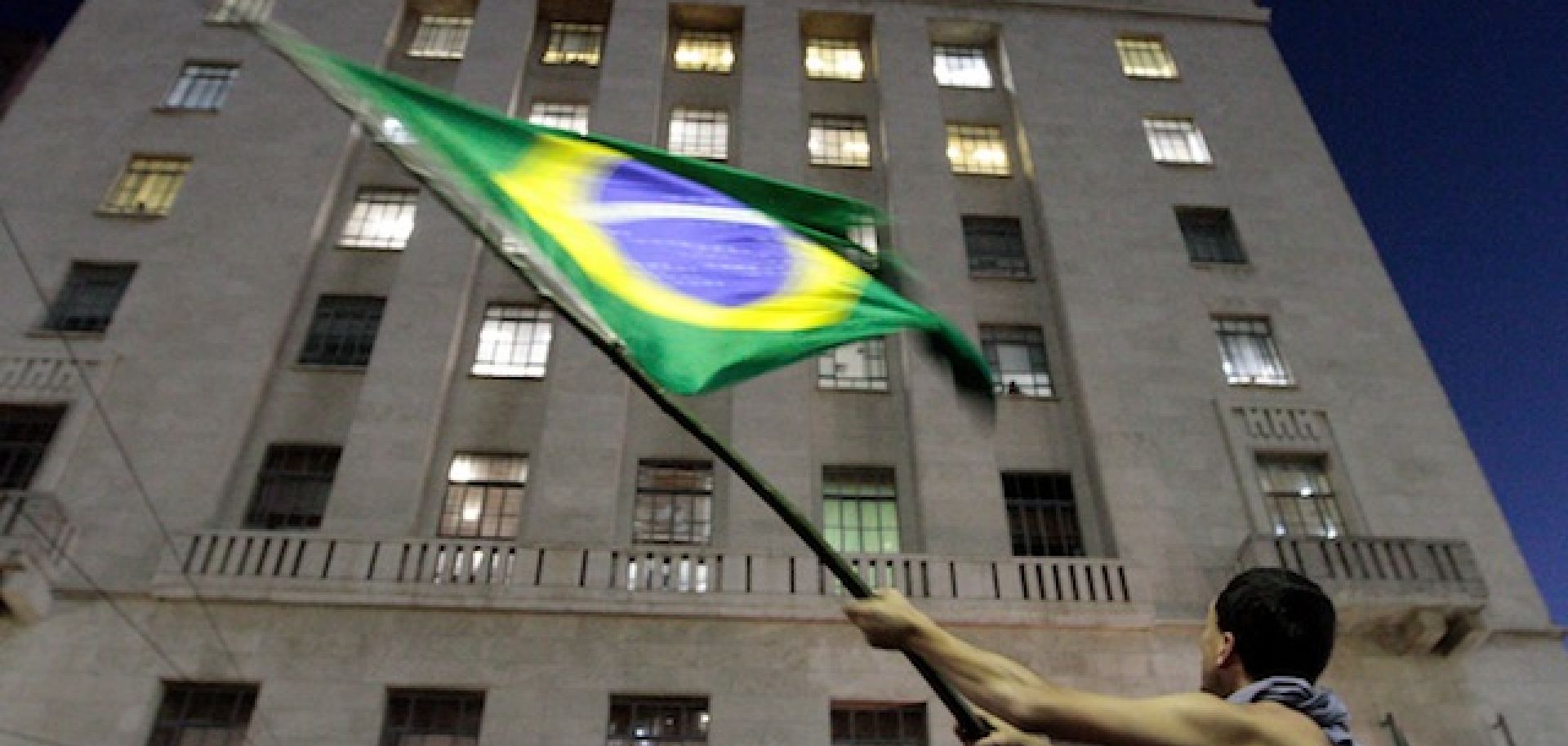ASSESSMENTS
Evaluating the National Effect of Brazilian Protests
Jun 19, 2013 | 17:30 GMT

(DANIEL GUIMARAES/AFP/Getty Images)
Summary
Facing widespread unrest, Brazilian President Dilma Rousseff will struggle to prevent protests from becoming a referendum on her presidency. The Brazilian protests have grown from small public demonstrations in Porto Alegre, Rio Grande do Sul state, to mass rallies in cities all over the country, including Rio de Janeiro, Brasilia and Sao Paulo. Though the protests have largely been peaceful, there have been several notable violent incidents widely covered by the media. Rousseff has stated her support for the protests as a demonstration of democratic strength. Although general criticism of the government is a widespread theme, the protesters do not yet have concrete demands and the protests are made up of many groups from divergent political positions.
Subscribe Now
SubscribeAlready have an account?
